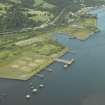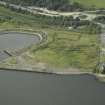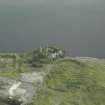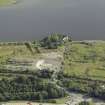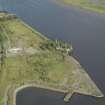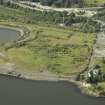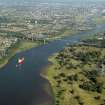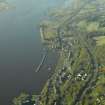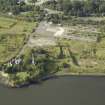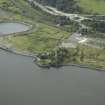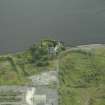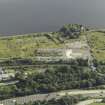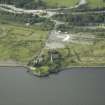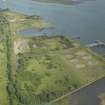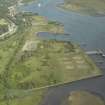Pricing Change
New pricing for orders of material from this site will come into place shortly. Charges for supply of digital images, digitisation on demand, prints and licensing will be altered.
Bowling, Shipyard
Shipyard (19th Century)
Site Name Bowling, Shipyard
Classification Shipyard (19th Century)
Alternative Name(s) River Clyde
Canmore ID 43397
Site Number NS47SW 68
NGR NS 44235 73620
Datum OSGB36 - NGR
Permalink http://canmore.org.uk/site/43397
- Council West Dunbartonshire
- Parish Old Kilpatrick (Dumbarton)
- Former Region Strathclyde
- Former District Dumbarton
- Former County Dunbartonshire
Desk Based Assessment (6 December 2017)
The shipyard at Bowling was established on the north bank of the Clyde immediately west of the Forth and Clyde Canal Harbour (NS47SW 64) around 1800 by the McGill brothers. McGill’s joined with James Scott, becoming Scott and Sons, in 1851 and this yard is depicted on the 1st edition of the OS 25-inch map (Dumbarton 1864, Sheet XXII.12). It comprised a wharf on its east side and slip docks 110m to the west, with an inn and a bowling green situated between the two. The 2nd edition of the map (Renfrewshire 1897, Sheet 003.12) shows that by the end of the 19th century the yard had expanded with the inn and bowling green having been replaced by a series of buildings and workshops. By then, a stretch of bank between the wharf and slip docks had been designated as the ‘Littlemill Slip Dock’. Over all, the yard measured 140m from E to W by 120m transversely. It traded as a limited company from 1958 as Scott and Sons (Bowling) Ltd and became part of the Scott Lithgow Group following the merger of Scott’s Shipbuilding and Engineering Co, Ltd. and Lithgows Ltd. in 1970 (Information from http://www.scottsofbowling.com, accessed 06/12/2017). Shipbuilding at the yard ceased in 1979 and aerial photography (DP 014267, DP 014250) showed a number of buildings standing in 2006. These have since been demolished but the wharf and slipways survive in a ruinous state. Records of Scott and Sons (Bowling) Ltd are held at the University of Glasgow Archive Services (GB248 GD 323/5 and GB 248 GD 322).
Information from HES Survey and Recording (AMcC) 6 December 2017.

















































